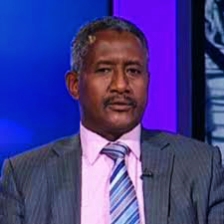Alexis Tsipras: Europe’s Mohamed Morsi

By: sideg Mohamed Othman
At a time when the Arab and Islamic worlds are engulfed in a struggle that takes many forms—ranging from the aspirations of broad sectors of youth towards the human values system developed after the two world wars and enshrined in numerous international treaties and declarations—they approach this heritage with an open mind, conscious that these values are the legacy of successive divine messages. These messages guided humanity upward, completing religion for them, bestowing grace, and linking the last of them with the first, choosing Islam as the name for its final message guiding towards noble morals and virtues.
On the other hand, there is a struggle with groups whose understanding of the divine guidance is limited, aligning their minds with the materialistic conflict in modern Western civilization. This civilization is built on the legacy of colonialism, the exploitation of nations’ resources, and the erosion of the very human values system mentioned above. The struggle of these groups manifests in forms of extremism, where their efforts are not directed towards guiding the other, but rather excluding, eliminating, and warring against them.
The image of Bin Laden, raising his finger towards the other world that cornered and pressured him until he took refuge in the caves of Afghanistan, aligns with the image of young George Bush aboard the American warship, invoking the legacy of the Crusades, dividing the world into two camps: for or against, a house of war and a house of peace.
At this time, another conflict closely connected to the Middle East and the Arab and Islamic world is taking place—a conflict of a new generation in the West, weighed down by a heavy legacy of wars, colonialism, and the deployment of human and material resources to eliminate the other, whether through cold or hot wars. This generation is troubled by the scale of resources used in this destruction, while their societies spiral into both moral and financial bankruptcy. They express their rejection of this reality through protest movements like Occupy Wall Street, or by setting up camps in front of the London Stock Exchange, or by using their vast technological knowledge to expose the secrets of systems that oppress nations. This is how WikiLeaks, Edward Snowden, and many others, who are shuttled between prisons in Western countries, come to the fore.
In both cases and both conflicts, entrenched regimes, believing they have a divine right to rule and control people’s destinies, strike back against these youth movements with varying degrees of violence depending on the location. In Cairo, tanks crush human bodies, while in the West, Edward Snowden seeks refuge in Moscow to escape Washington, and Julian Assange remains in the Ecuadorian embassy in London, fleeing an extradition order to the U.S.
In Cairo, the old-new regime uses courts to hang Mohamed Morsi, the democratically elected president, while in Greece, regimes come together to discipline the Greek people, who produced rebellious youth defying the authority of capital, which had burdened them with mountains of debt interest. They are now being asked to repay billions, which are, in reality, accumulations of services for smaller amounts borrowed by Greece.
Egypt, the cradle of civilization and the path of the prophets’ migrations since Abraham (peace be upon him), and Greece, whose stones and skies breathe the scent of ancient history and human civilization, are not places for rebellious groups against the old-new global order that views the Universal Declaration of Human Rights through narrow lenses, falling short of its overarching articles that begin by affirming the right to life.
Since yesterday, the vast Western media machine has started pouring out dense propaganda, mocking the Greeks, who have become the first country in the “First World”—yes, in the First World!—to fail to pay its debts. Some of this media has even gone so far as to compare Greece to Angola and Sudan!
It’s the same language we heard in Egypt: “They want to ban dancing and acting!” and “They would have taken us back to the Middle Ages!”
Until next Sunday, the deadline Alexis Tsipras set for his people’s referendum on whether to submit to the IMF’s conditions and the system it represents or to stand atop the walls of Troy to defend the revolution they began by electing a leftist party in a sea of capitalist sharks and a world ruled by feudalism—until that day, the mission of the Western media will be to crush the morale of the Greek people and drive them to the polls like a herd to deliver their young leader after dealing him a fatal blow.
What is missing is the ability to build bridges between the forces engaged in this conflict—between Edward Snowden and Bassem Youssef, between Alexis Tsipras and Mohamed Morsi.
What is missing is the Hilf al-Fudul (Alliance of the Virtuous).



